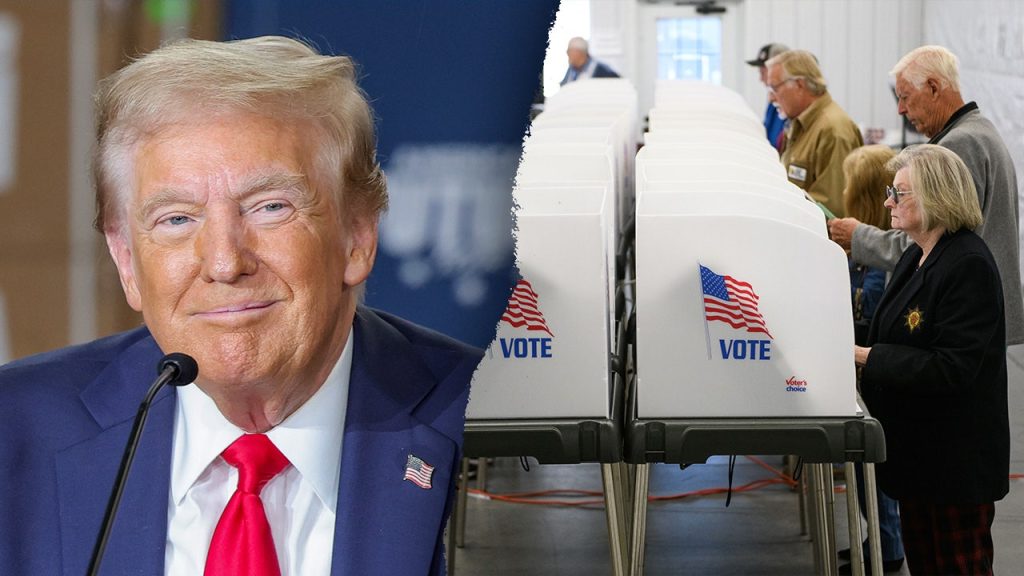Lawmakers and officials in North Carolina are optimistic that Hurricane Helene will have little impact on Americans’ access to the ballot box, with early voting already underway in the state. Republican officials in North Carolina believe that former President Donald Trump will ultimately win the state, with Rep. Jake Johnson and Rep. Chuck Edwards both predicting a high voter turnout in favor of Trump. Despite the devastation caused by Helene in the Southeastern U.S., particularly in northwestern North Carolina, concerns about voter access have been addressed through bipartisan efforts to make it easier for people in affected areas to reach polling locations.
North Carolina is an important swing state in national elections, with Trump winning there by a narrow margin in 2020. Both the Trump and Vice President Kamala Harris campaigns are investing heavily in the state this year. Despite the challenges posed by the recent storm, the Republican-led state legislature collaborated with Democratic Governor Roy Cooper to pass a comprehensive elections package to facilitate voting for residents in affected counties ahead of the November 5th elections. This bipartisan cooperation reflects a shared commitment to ensuring that all eligible voters have the opportunity to participate in the democratic process.
Rep. Chuck Edwards, whose district was hit hard by Hurricane Helene, initially expressed concerns about residents’ ability to vote following the storm. However, he now believes that record turnout at the polls is likely, based on his observations of enthusiastic and optimistic voters at early voting facilities. Edwards highlighted the energy and excitement among voters as a positive sign for Trump, attributing the turnout to residents’ frustrations with the current state of the country. Additionally, he credited the state government’s efforts to facilitate voter access as a key factor in motivating voters to participate in the upcoming elections.
Rep. Jake Johnson echoed Edwards’ sentiments, suggesting that the recovery efforts in the aftermath of the storm could influence voters’ preferences in the upcoming elections. Johnson pointed to the perceived lack of federal response in some rural areas of North Carolina as a factor that could motivate those communities to vote for Republican candidates. Both Johnson and Edwards praised the state government’s elections legislation for making it easier for motivated voters to participate in the electoral process, emphasizing the importance of ensuring accessibility and inclusivity in the democratic process.
While the White House’s response to Hurricane Helene has received mixed reviews from Republican officials, including rare praise from some for President Biden’s handling of the situation, the focus in North Carolina remains on ensuring that residents can exercise their right to vote. Recent data from the State Board of Elections indicates a record-breaking turnout for early voting, with over 350,000 people casting their ballots in-person on the first day of early voting. This surge in voter participation has fueled optimism among officials that the storm will ultimately have little impact on the outcome of the elections in North Carolina, despite the challenges posed by Helene’s aftermath.
As North Carolina residents continue to rally to overcome the impacts of Hurricane Helene, their commitment to civic engagement and participation in the electoral process remains strong. The Quinnipiac University poll showing a slight lead for Vice President Harris over former President Trump in North Carolina reflects the dynamic and competitive nature of the state’s political landscape. With record turnout in early voting and bipartisan efforts to ensure voter access, North Carolina is poised to play a pivotal role in the upcoming elections, with residents demonstrating resilience and determination in the face of adversity.













